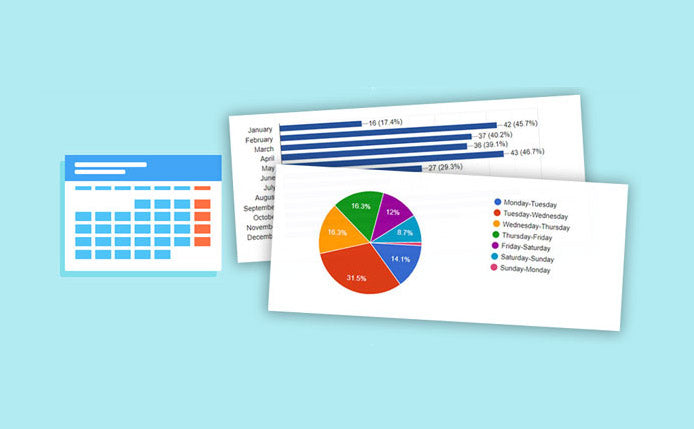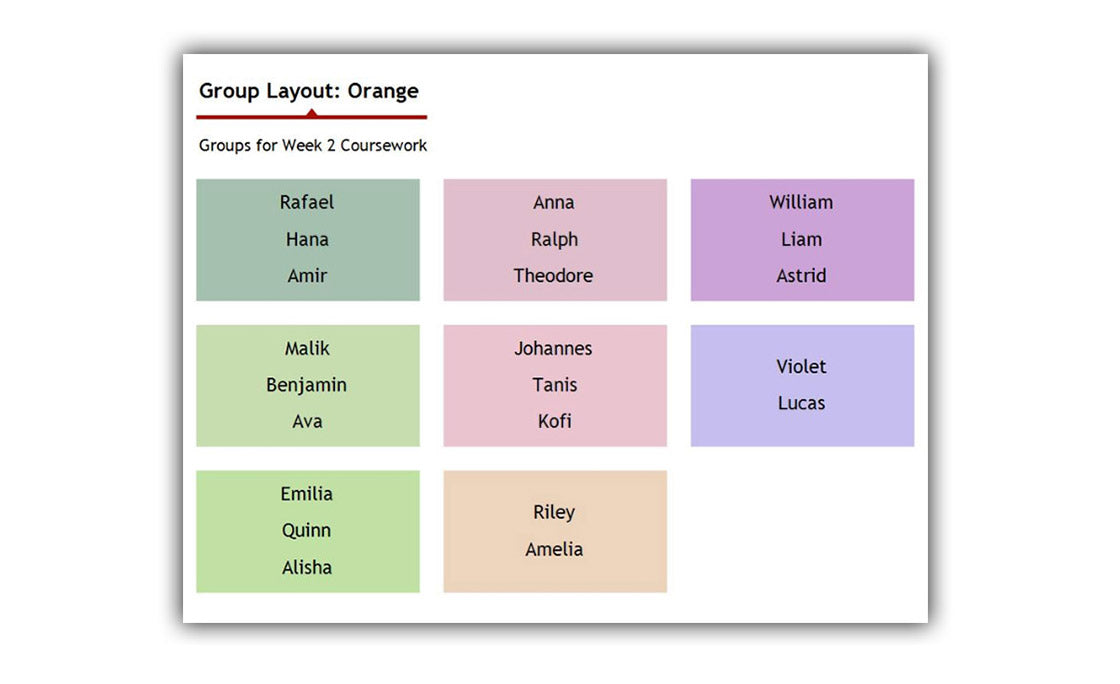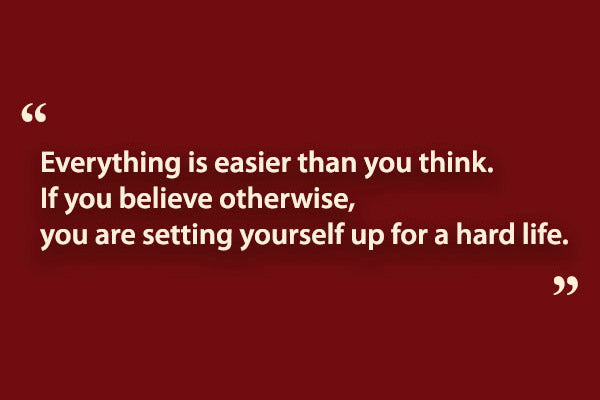You are a subject expert. You are in the process of designing a face-to-face interactive course and wonder how to offer it to the market. A primary question you may ask yourself is how to decide the timing:
- How long should be the course?
- When should you run the course?
- How should you plan the breaks?
- When should you start or finish the course?
We know that answering such questions can depend on the domain, the target market and the local customs. In any case, getting to know what the training community thinks about such areas can be thought provoking, at least to know if your intuition about an answer is correct.
To find out what the training community thinks, we sent a survey and collected replies from our subscribers. In this article, we will present the data, followed by analysis of what this data suggests along with our own observations when running courses.
There was a total of 92 respondents from around the world. The results show that some questions are undecided and some results are surprising. In any case, the results are fascinating.
Bear in mind that the context is teaching short courses to adults. These include corporate training, technical subjects, arts & crafts, soft skills and the like.
Survey Results
For a one day course which day of the week would lead to maximum attendance based on your experience?
For a half day course, would you rather run it in the morning or in the afternoon?
For a 2-day course (assume consecutive) which days of the week would lead to maximum attendance based on your experience?
For a 2-day course (assume consecutive) which days of the week would be your second choice in maximising attendance based on your experience?
For a 3-day course (assume consecutive) which days of the week would lead to maximum attendance based on your experience?
What is your view on running a course on Monday?
What is your view on running a course on Friday?
What is your view on running a 5-day course?
What is your view on running a multi-day course on non-consecutive days, like weekly?
Which month(s) are most ideal for running your courses?
Is it a good idea to run a business course during non-summer school holidays?
When is a good time to start a day long course?
When is a good time to finish a day long course?
Analysis
Here is what we can learn from the survey. Please note that we understand that in some countries a week starts on a Sunday. Friday and Saturday are considered weekend. The following advise is provided based on a week starting Monday with Saturday and Sunday as the weekend. You can map out the results to your specific locale and calendar.
- Tuesday, Wednesday and Thursday are the most ideal days to run a course.
- Deliver a half-day session in the morning.
- For a 2-day course, Tuesday-Wednesday is the most desired. If that’s not possible, most trainers like to opt for a Wednesday-Thursday.
- For a 3-day course, the most ideal days are Tuesday-Wednesday-Thursday.
- As a rule of thumb, for multi-day courses, aim to avoid delivering on Monday or Friday when you can.
- The consensus on whether it is a good idea to run a course on Monday tilts more towards no than yes.
- There is no clear consensus on whether to run a course on Friday; opinions are evenly divided between yes, no and doesn’t matter. Hence, choose based on your domain, market and intuition.
- About half of respondents think that having a 5-day course is a bad idea.
- Half of respondents think that non-consecutive multi-day courses are useful as delegates can work on homework in between, but the biggest concern is possible drop in attendance in later weeks.
- Not surprisingly, the best months to run courses are September and October. The next best are May and February. The worse month is December.
- The question on whether it is a good idea to run courses during school holidays still remains as opinions are almost evenly divided, with a small tilt towards a yes.
- Start the course between 8:30 and 9:30 with 9:00 being the most desired.
- Finish the course between 4:00 and 5:00.
Comments from the Training Community
We also collected views of respondents about when to run a course. They are grouped under various headings below:
On Timing:
- If participants are staying at hotels to attend course, Mondays would be great. But if people are travelling, Monday would not be a great day to start and also Friday should be winding day with fun full activities.
- Not advisable to start a course early on Monday because people are still having extension of their weekends in their minds. Secondly, not to finish course later than 3 PM on Friday because they become unsettled.
- When running a course ending on a Friday, many out of town delegates will leave prior to conclusion to catch plane home or beat inner city traffic. The conversation always revolves around what time do we conclude the training on the Friday. The upside of it is that they are willing to start early mid-week or even end half an hour later days prior to Friday to ensure covering the entire coursework.
- Normally Fridays are always good for training as the audience is pepped up and looking forward to the weekend. However, in Pakistan we have a long lunch break for prayers and lunch which reduce the training hours. Hence Thursday is the best day for training - you get a full day and people are alert as well!
- It also depends on the country where you want to do the course and on the participants . In some countries because it is hot people prefer to start early and finish early, etc.
- I have a session plan that tells me how long each section of the course needs to be as delegates hate it when courses run over time!
- Our institute remains closed in May to July and in Dec, so it will be preferred time for us to run a course, which may not be preferred by others.
On Breaks
- Breaks are highly important, so timings and number of days may depend on the number of breaks you want to fit in
- Need a fixed lunch break published ahead of time but flexible other breaks if possible
- In between, give 3 min toilet breaks.
On Length of Courses
- Regarding 5-day long courses, I am quite certain you can only do those if the people are from an institution with a clear goal in mind, and not for some crazy purpose like specialization in an open course. So, it’s probably mostly client-based / project-based. At least that was my experience.
- An all-day course is fine for employees who are sent by the company, but not independent contracts (Realtors, etc) I am now shifting to half day workshops for them.
- The timings (half a day or even 5 days) of the training is totally based upon the content of it.
On Managing the Day
- Consideration has to be given to working parents who may have to drop and pick up children to and from school. They tend to lose focus if you go beyond the normal work day.
- Regarding the start and end of a full-day course or even in the case of most longer courses, people attending usually have some other stuff planned... sitting in the pool, sightseeing, playing with the local fauna, tourism, etc. So I make it my mission to have full working mornings and keep them for a couple of hours after lunch, or organize the agenda so as to have a long lunch break... like 4 hours. So, either I start earlier - 8:00 and finish the first part of training at 12:30, then start part 2 at 16:30 and stop for dinner at 20:00.
General Comments
- Use your time wisely. People are expecting it to be useful for their position. If it is not useful, they will tune you out and start doing anything else.
- Timing is different for 1) adults & youth, 2) employed or freelance, 3) forced to training or in real need.
- Much of this depends on the target participants, the industry needs, the nature of the learning. A Just-in-Time program can be run at any time, any day of the week as the requirement is immediate. Skill-based courses can be spread over weeks so that practice time is factored. Knowledge based courses can be continuous.
- Consider: Which age group is the course to be offered to?
- These answers will vary greatly depending on the audience.
- Much of this depends on which organization/ institution you are working with and which target group you are inviting, I believe; thank you for the reflection!
- Intensity is the guiding principle to ensure participants get the most out of the session
Soft Skills Training Materials
Get downloadable training materials
Online Train the Trainer Course:
Core Skills
Learn How to Become the Best Trainer in Your Field
All Tags
Training Resources for You

Course Design Strategy
Available as paperback and ebook

Free Training Resources
Download a free comprehensive training package including training guidelines, soft skills training activities, assessment forms and useful training resources that you can use to enhance your courses.

Our Comprehensive Guide to Body Language

Train the Trainer Resources
Get Insights - Read Guides and Books - Attend Courses
Training Materials
Get downloadable training materials on: Management Training, Personal Development, Interpersonal Development, Human Resources, and Sales & Marketing



























Leave a comment
All comments are moderated before being published.
This site is protected by hCaptcha and the hCaptcha Privacy Policy and Terms of Service apply.